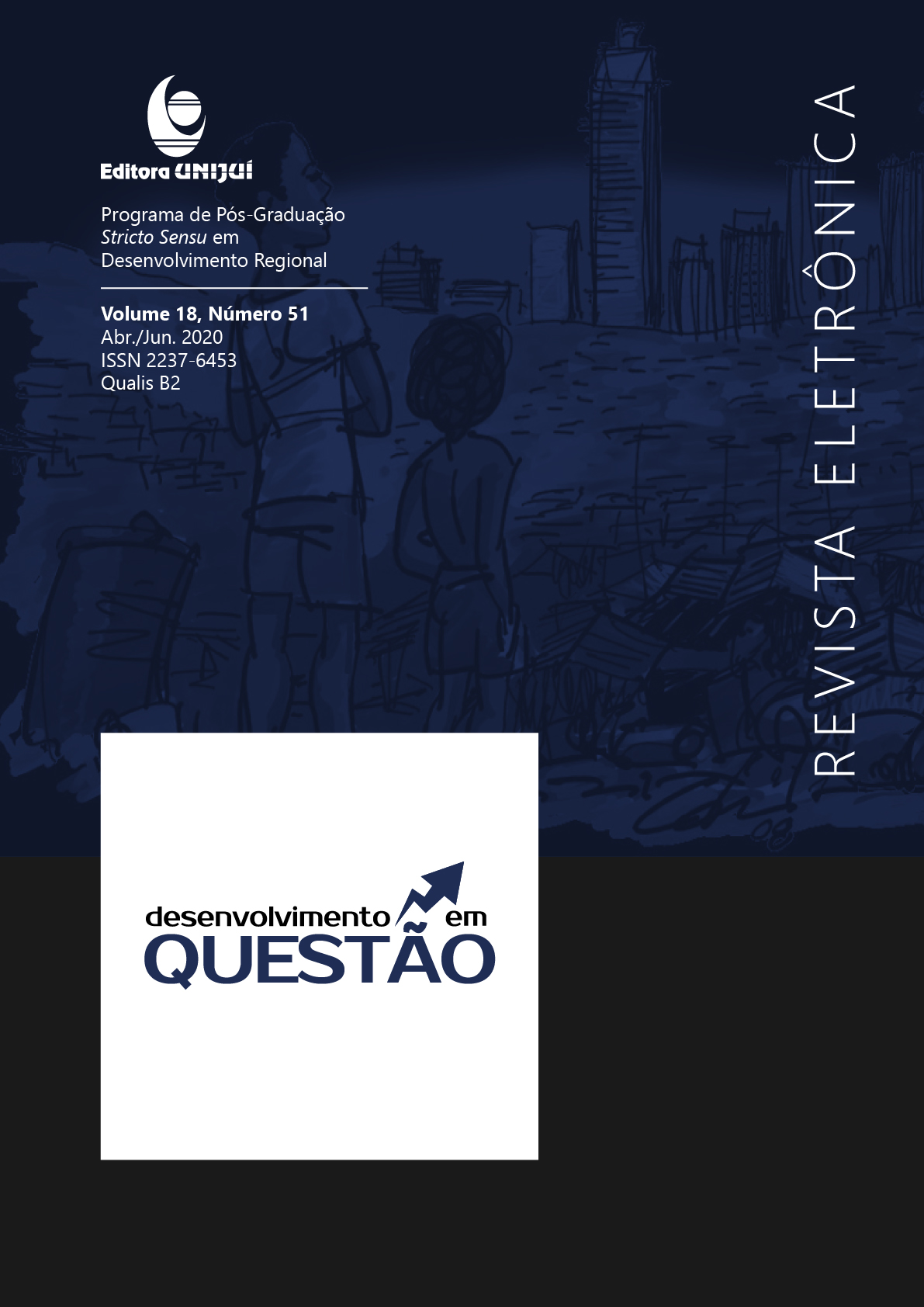Discursos Jornalísticos Acerca do Território do Tabaco no Sul do Brasil
DOI:
https://doi.org/10.21527/2237-6453.2020.51.168-185Palavras-chave:
Território do tabaco, discurso, jornalismo, Agência Pública, Gazeta do Sul.Resumo
O território do tabaco, localizado no Sul do Brasil, se caracteriza pela produção de fumo em pequenas propriedades familiares, que vendem suas produções para grandes empresas beneficiadoras das folhas. O Brasil é o maior exportador de tabaco do mundo e o segundo maior produtor e essa produção é um componente relevante na constituição do espaço a que chamados de território do tabaco. Diante disso, e da compreensão de que a mídia influencia a construção de sentidos sobre a realidade e, ao fim, sobre a construção simbólica do território, propõe-se nesse artigo identificar os discursos jornalísticos acerca do território do tabaco. Os veículos de mídia selecionados constituem diferentes tipos de prática jornalística: a Agência Pública, com um jornalismo nacional que se apresenta como uma alternativa à mídia tradicional, e o jornal Gazeta do Sul, regional, caracterizado aqui como comercial e hegemônico na região onde atua, no Vale do Rio Pardo (RS), inserido no território do tabaco. O artigo tem por base a literatura sobre território, cultura e análise do discurso e a metodologia aplicada foi a análise de discurso. A partir da identificação de formações discursivas, evidenciou-se que os veículos apresentam discursos antagônicos sobre o mesmo território, sobre a mesma produção de tabaco.
Downloads
Publicado
Como Citar
Edição
Seção
Licença
Ao publicar na Revista Desenvolvimento em Questão, os autores concordam com os seguintes termos:
Os trabalhos seguem a licença Creative Commons Atribuição 4.0 Internacional (CC BY 4.0), que permite:
Compartilhar — copiar e redistribuir o material em qualquer meio ou formato;
Adaptar — remixar, transformar e criar a partir do material para qualquer fim, inclusive comercial.
Essas permissões são irrevogáveis, desde que respeitados os seguintes termos:
Atribuição — Atribuição — os autores devem ser devidamente creditados, com link para a licença e indicação de eventuais alterações realizadas.
Sem restrições adicionais — não podem ser aplicadas condições legais ou tecnológicas que restrinjam o uso permitido pela licença.
Avisos:
A licença não se aplica a elementos em domínio público ou cobertos por exceções legais.
A licença não garante todos os direitos necessários para usos específicos (ex.: direitos de imagem, privacidade ou morais).
A revista não se responsabiliza pelas opiniões expressas nos artigos, que são de exclusiva responsabilidade dos autores. O Editor, com o apoio do Comitê Editorial, reserva-se o direito de sugerir ou solicitar modificações quando necessário.
Somente serão aceitos artigos científicos originais, com resultados de pesquisas de interesse que não tenham sido publicados nem submetidos simultaneamente a outro periódico com o mesmo objetivo.
A menção a marcas comerciais ou produtos específicos destina-se apenas à identificação, sem qualquer vínculo promocional por parte dos autores ou da revista.
Contrato de Licença (para artigos publicados a partir de 2025): Os autores mantêm os direitos autorais sobre seu artigo, e concedem a Revista Desenvolvimento em Questão o direito de primeira publicação.











